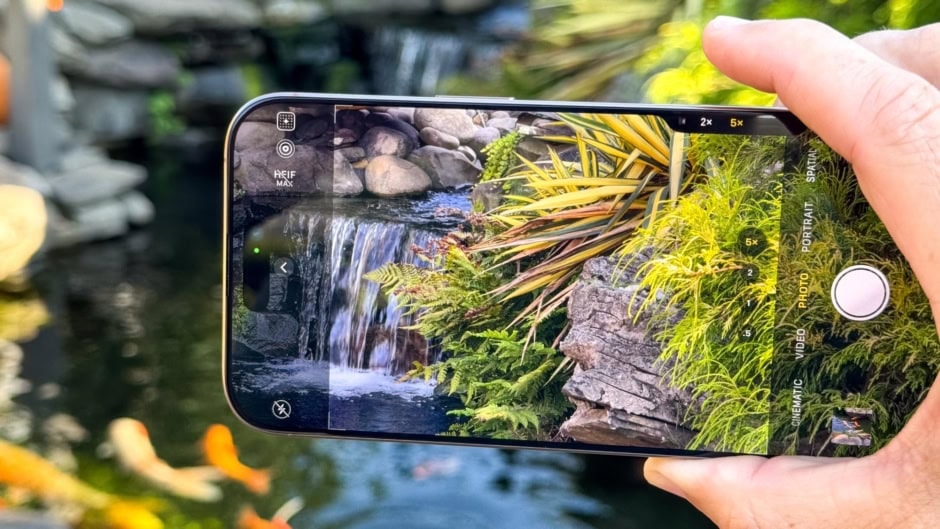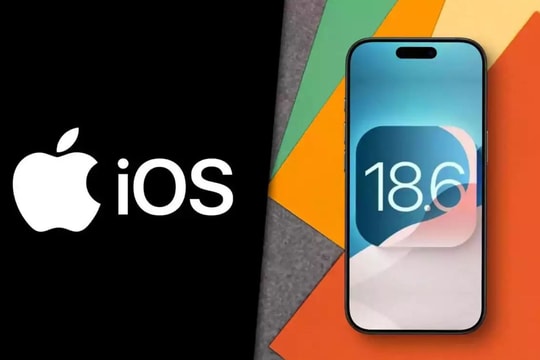How will Apple revolutionize the iPhone camera?
With the wave of innovation in smartphone camera technology, how will Apple revolutionize the iPhone camera to meet user expectations?
Many people feel that the camera on the iPhone has not really met expectations, even when owning high-end iPhone versions, because of the way Apple implements smart automatic image processing technology (Smart HDR).
Basically, Smart HDR is a photography support feature on mobile devices, bringing significant improvements in image quality. With the ability to balance light and color, Smart HDR helps create better, more accurate and more vivid photos.

Instead of leaving the default photo parameters, Smart HDR automatically adjusts the contrast of the photo, thereby ensuring that the dark and light areas in the photo are balanced and have clearer contrast. This makes the colors in the photo more realistic and believable.
It sounds ideal, but Smart HDR’s “too smart” nature can make some iPhone photos look unnatural. Sometimes faces are overexposed, skies lose depth, or the overall image looks heavily edited rather than authentic.
This isn't the only problem, but it does reflect the fact that, in the age of computational photography, it's the algorithm that decides what a photo will focus on and what it will leave out.
Apple has been steadily improving this experience with more powerful processors, better lenses, and better algorithms, but there’s one game-changing element that could take the iPhone beyond the current norm, even approaching or surpassing professional cameras: a custom image sensor.
Notably, Apple filed a patent for an “Image Sensor with Stacked Pixels for High Dynamic Range and Low Noise” last month. Unlike many other patents that are either experimental or controversial, this invention is expected to be a real technology that will soon be commercialized, opening up the potential to fundamentally change the way iPhones capture images.
How could a custom image sensor change the iPhone camera experience?
According to analysis from MacRumors, Apple's new patent describes a type of image sensor that has the potential to be superior, even "surpassing many professional video cameras" if implemented correctly as the technical documentation suggests.
The special thing here is that Apple is not just stopping at improving software or processing algorithms, but is going one step further by building a new hardware platform for the iPhone camera.
According to social network Weibo, this sensor has been developed by Apple and is currently in the testing phase. That means the technology can completely appear on the next generation of iPhone.
In addition to promising improved image quality, this is also a sign that Apple wants to reduce its dependence on Sony - a long-time sensor supplier - or at least diversify its supply sources to better control the production chain.

At the same time, the Financial Times revealed another important piece of the puzzle: after a huge $600 billion investment in the US manufacturing sector, Apple is quietly preparing for a completely new chip technology.
Although details have not been released, many sources believe that it is the “three-layer stacked” image sensor manufacturing process, a technology that has never been commercialized on a large scale before.
What's even more interesting is that Apple may be partnering with Samsung's System LSI semiconductor development division to bring this technology to fruition.
Apple's new generation image sensor is about to be revealed
According to the Financial Times, Samsung is currently researching and developing image sensors for the iPhone 18 series at its semiconductor factory in Texas (USA). Initial production tests are expected to start soon, paving the way for mass production in the near future.
If successful, this would not only be a big step forward for Samsung and Apple, but could also start a “revolution” in camera technology on the iPhone. At the same time, producing sensors in the US would also help Apple meet the requirements from the US government to bring many strategic components back to domestic production, reducing dependence on the volatile international supply chain.
Along with this cooperation, Apple continues to stick to its strategy of developing exclusive chips, in order to better control its hardware ecosystem. From the A-series processor to the 5G modem expected on the iPhone 16e, and even the Wi-Fi modem rumored to appear on the iPhone 17 series later this year, all show Apple's increasingly clear ambition to be self-sufficient in technology.
Directly participating in the image sensor production process is the next step in that strategy, bringing the iPhone closer to a more efficient, powerful and independent device than ever before./.

.jpg)



